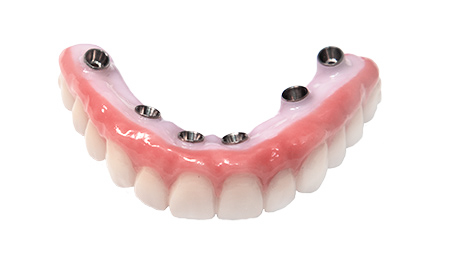The Facts About Dental Sense Revealed
Dental Sense for Beginners
Table of ContentsThe Single Strategy To Use For Dental SenseThe Best Strategy To Use For Dental SenseThe Main Principles Of Dental Sense Dental Sense - The Facts
are clinical devices operatively dental implanted into the jaw to recover a person's ability to eat or their appearance. They give support for synthetic (fake) teeth, such as crowns, bridges, or dentures. When a tooth is lost because of injury or illness, a person can experience complications such as rapid bone loss, faulty speech, or modifications to eating patterns that cause discomfort.Oral implant systems contain an oral implant body and dental implant joint and may likewise consist of an abutment fixation screw. Cosmetic dentistry services. The dental implant body is surgically inserted in the jawbone instead of the tooth's origin. The oral implant joint is generally connected to the implant body by the joint fixation screw and expands with periodontals right into the mouth to support the attached synthetic teeth
(https://dental-sense-48874067.hubspotpagebuilder.com/dental-sense/dental-veneers-cost-kids-dental-and-dental-implant-vs-bridge-everything-you-need-to-know)Structure of The Oral Implant System choosing dental implants, speak with your dental service provider regarding the potential advantages and risks, and whether you are a prospect for the treatment. Points to think about: Your total wellness is an important aspect in figuring out whether you are a great candidate for oral implants, how much time it will take to heal, and the length of time the dental implant might remain in area.
Cigarette smoking might affect the healing procedure and decrease the long-term success of the dental implant. The healing procedure for the dental implant body might take a number of months or longer, during which time you normally have a short-lived abutment instead of the tooth. the oral implant treatment: Meticulously adhere to the oral hygiene instructions offered to you by your oral copyright.
The Basic Principles Of Dental Sense
Implant failure can lead to the requirement for another surgical procedure to fix or change the dental implant system. Recovers the capability to eat Recovers cosmetic look Helps maintain the jawbone from shrinking due to bone loss Maintains the health of the surrounding bone and gums Helps maintain surrounding (nearby) teeth stable Improves high quality of life Damages to surrounding all-natural teeth during implant positioning Injury to the surrounding cells during surgical treatment, such as sinus perforation Injury during surgery (as an example, fracture of bordering jawbone) Poor feature, such as feeling like the teeth do not attack with each other typically A sensation that the tooth hangs or twisting in position resulting from a joint screw loosening up Implant body failure (looseness of the dental implant body) because of systemic infection, which may be extra likely in people with uncontrolled diabetics issues because of regional infection in bone and gums supporting the implant body as a result of delayed recovery, which might be much more likely in clients who smoke Trouble cleaning up the gum tissues around the implant, resulting in inadequate dental health Untreated periodontal disease Post-surgical feeling numb due to nerve impingement or damage Always notify health care service providers and imaging service technicians that you have dental implants before any magnetic resonance imaging (MRI) or x-ray procedures.
FDA is not familiar with any damaging occasions reported for MRI or x-ray treatments with oral implants. Oral implants systems are usually made of products that follow worldwide agreement standards of the International Organization for Standardization (ISO) or ASTM International. These standards have information of what makes a safe material.

A dental implant is a framework that replaces a missing tooth. With screw-like devices, the surgeon inserts a dental implant right into the jawbone, and it useful content works as an anchor for a synthetic tooth, called a crown. A device called an abutment attaches the fabricated tooth to the oral implant. The crown is tailor-made to fit the person's mouth and match the color of their teeth.
The Ultimate Guide To Dental Sense
Some people are not qualified for dental implant surgical treatment. It is for dental surgeons to run on people with: acute illnessuncontrollable metabolic diseasebone or soft cells disease or infectionIf these concerns are dealt with, an individual can have the surgical treatment. In, dental surgeons avoid operating people with: If individuals with any one of the above undergo oral implant surgery, there is a higher threat of the implant stopping working.

Dental dental implant surgery is a tailored procedure. Provide you time to heal. Affix the post and final crown, bridge or denture.
Next off, your specialist will meticulously place the oral implant right into your jaw. If your implant is near the front of your mouth, your dental expert will certainly make a short-lived tooth for you to wear until you recover.
The Single Strategy To Use For Dental Sense
Your provider can tell you what to expect in your scenario. During the healing stage, your jawbone should fuse to the dental implant. This process, called osseointegration, is important for security and long-lasting success. This process can take anywhere from three to nine months. In some cases, it may take much longer.
Once your implant heals, your dental professional can affix the joint (little connector blog post) and your last restoration (crown, bridge or denture). This generally takes concerning one hour to complete and may need a second minor surgical treatment. You shouldn't feel any type of discomfort during your dental implant treatment since your company will certainly use drug to numb your periodontals.